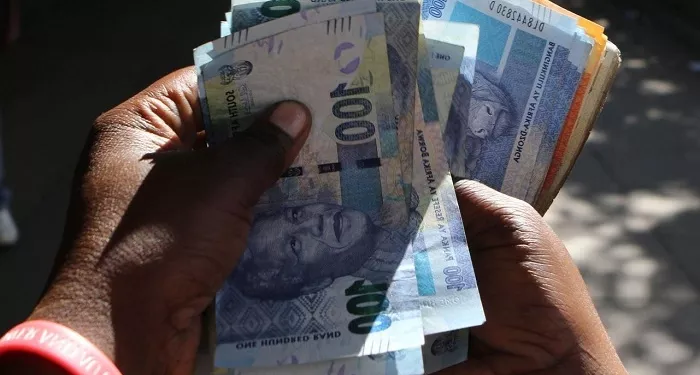South Africa’s Reserve Bank has taken an aggressive hawkish stance to raise the interest rates by a quantum not seen since January 2016, in a bid to reign in on inflation.
The Bank disclosed the 50-basis-point increase in the repurchase rate to 4.75% in its MONETARY POLICY COMMITTEE statements.
The aggressive move comes as the US Federal Reserve and European Central Bank adopt increasingly hawkish stances that have reduced the appeal of South African assets for offshore investors, triggered capital outflows and currency weakness.
The rand’s depreciation has threatened to add to inflation risks exacerbated by Russia’s war with Ukraine and pandemic-related supply-chain disruptions.
SA Rate hike
The statement said “the MPC decided to increase the repurchase rate by 50 basis points to 4.75% per year, with effect from the 20 of May 2022. Four members of the Committee preferred the announced increase and one member preferred a 25 basis point rise in the repo rate.”
The bank stated that price shock was a main concern for the economy, stating, “The MPC will seek to look through temporary price shocks and focus on potential second-round effects and the risks of de-anchoring inflation expectations.”
South Africa’s annual inflation held at 5.9% in April, just shy of the 6% maximum target set by the Reserve Bank. But in recent years, the bank has been clear that it considers the middle of its target range, 4.5%, to be an appropriate level for consumer inflation or CPI, and ongoing price rises – especially for petrol and diesel – will make that extremely hard to attain in coming months.
While the rate increase should help prop up the rand and anchor inflation expectations, it’s likely to draw criticism from some politicians and labour unions amid a deterioration in domestic economic prospects and fears of a cost-of-living crisis.
The rand extended its gains after the announcement and traded stronger 1.44% at 15.8293 per dollar at the time of writing. Nonetheless, the rand has depreciated by 8.10% within a month.
However, the central bank now sees South Africa’s economy expanding 1.7% this year, down from a previous forecast of 2%.
Will Nigeria follow suit?
Nigeria’s CBN has kept interest rates sticky at 11.5% since September 2020 when it cut rates by 100 basis points (1%). This was in response to a ravaging Covid-19 which sent Nigeria into a recession. Thus, to stimulate economic growth, the apex bank cut rates and reinforced a strict regime of CRR all aimed at encouraging lending.
It continues to keep the rate stable since then despite rising inflation rate and gave these reasons in the last MPC meeting held in March.
Nigeria’s CBN reason for keeping interest rates stable
“In the last Monetary Policy Committee communique, the CBN explained why it decided to holdOn tightening in order to rein in the rising price level, MPC was of the view that given the fragile state of the current GDP growth and the potential external and domestic headwinds from the Russia-Ukraine war, a contractionary policy stance would stifle the expected investment expansion needed to drive growth and absorb the shocks in Nigeria. MPC also feels that not only would tightening reverse the steady improvement recorded in credit expansion, it is also of the view that tightening would not necessarily tame the inflation, particularly where the marginal decline is relatively not yet sustainable.”
“In the case of whether to loosen, the Committee feels that loosening would trigger further liquidity surfeit and fuel inflationary pressure as available funds outstrip the economy’s absorptive capacity. MPC also feels that loosening would trigger FX demand pressure, as the excess liquidity would exert demand pressure on the FX market and trigger a naira depreciation which would also fuel inflation. Based on the foregoing, the Committee decided to adopt a hold stance as it would indicate a precautionary and consistent policy stance with the prevailing economic conditions particularly as further economic and financial shocks are exerted from the ongoing Russia-Ukraine war. The Committee, however, expressed cautious optimism, that with sustained interventions by the Bank in various sectors of the economy and broad fiscal support to tame these legacy structural constraints, price development will moderate as output growth improves.”
The recent spike in the inflation rate which currently stands at about 16.82% means more pressure for the CBN to reconsider its dovish rate stands. It is likely that the central bank is observing what it happening in South Africa, Ghana and other emerging market countries that have also increased rates.




